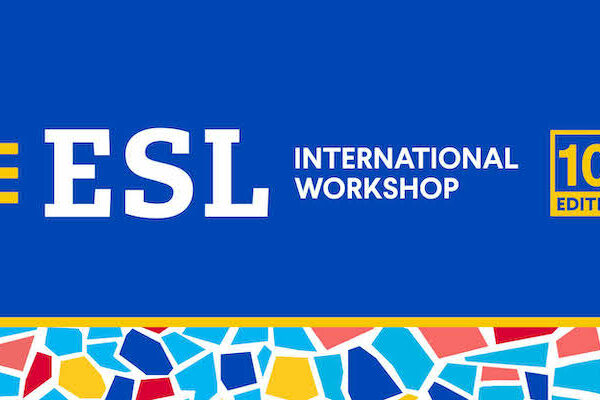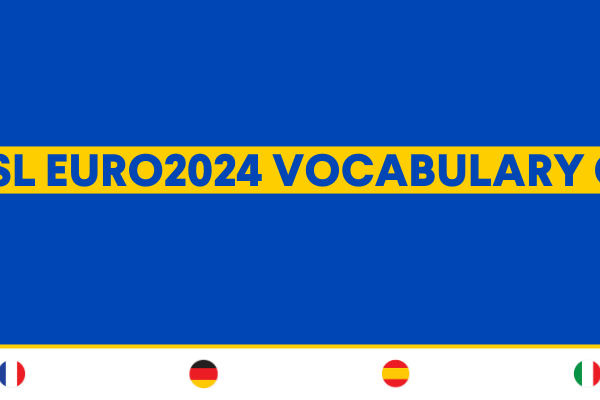“People, places and languages”, these three points build the foundation of ESL and many of our staff are in contact with the three of them on their everyday personal and professional life. Before the year 2015 comes to an end, we’d like to introduce you to our Dutch Regional Manager, Johan, who is a really good example of these three golden bars at ESL, having lived in many places all over the world and speaking seven languages!

The ESL bases are people, places and languages. You have experienced all three. Do you think they are interrelated?
Every place I have lived in was interesting in its own way and I think that, in the end, it’s the people you meet who make a place memorable. When you return to a place where you’ve lived, still having friends there is what really makes you feel at home, because it feels like a familiar environment. Furthermore it’s so important to learn the languages in the country because, even though you can try to learn one in your own country, you’ll never see how people react in their own cultural context until you actually use the language in the place where it is spoken.
Have you had any funny or embarrassing experiences while studying a language?
I majored in Chinese Studies and got two scholarships to study at the University of Tianjin in the north of China. The Chinese were always shocked that, when they asked me if I was homesick, my answer would be “no”. In the Chinese context, it’s not really politically correct to say that you’re not homesick. “Home” and “family” are the same word in Chinese, while the Chinese word for “homesick” literally means “to think of your home and your family”. When you say “no, I’m not homesick”, you are actually saying “no I don’t think of my home and family.” This is one of the most shocking things you can say to the Chinese because it means you don’t miss your family and you don’t love them. In Europe, if you say you’re not homesick, it has a different connotation than in an Asian context, where family is always at the top of your mind.
This is an example of the cultural differences that exist, which have nothing to do with language per se, but more with your cultural sensitivity. The same sentence can be interpreted very differently, depending on the cultural context.
What is your mother tongue and what languages do you speak on a daily basis to do your job?
I was born in Holland, so Dutch is my mother tongue, but I also speak English, Spanish, German, French and Chinese. I also speak a bit of Japanese; I call it “survival Japanese” because I’m able to make my way around.
Well, in the office we speak Dutch of course because that’s the language our clients speak when they contacts us. The company language within ESL is English, so its important that staff members have a good level of English – which for most Dutch people is not too complicated. The staff is also often in contact with the partner, with whom they speak English. If we have visits from partner schools, depending on the country they come from, I normally end up speaking their language if I can. For the Dutch market, countries like France and Spain are rather important.
For my job at ESL I don’t use my Chinese, to be honest. Simply because we don’t have Chinese-speaking clients in this country. Only perhaps when I meet some representatives from the schools in China.
As you can see, I do use all the languages I speak, but not with the same frequency. So yes, I feel that my language knowledge is fairly useful in my job.
It must be interesting to work in an international company. What have you learned so far about cultures and languages since working at ESL?
One of the things that we learned here is more Flemish – as we take care of translations and because our office here is also in charge of the IAC service for the Antwerp office in Belgium. In Antwerp they speak Flemish, which is basically Dutch, but with a slightly different choice of words every now and then. There are differences, but not as many as between German and Swiss German. However, you sometimes find interesting expressions and think, “oh, ok so that’s called differently now”. To a Dutch speaker, Flemish can sound pretty interesting, funny and unexpected (and vice versa). So we’ve definitely improved our Flemish the past couple of years and have learned more about our neighbours.
_
Johan van Wegen joined ESL four years ago, in 2011, as the Regional Manager for the Netherlands in Amsterdam. Prior to working for ESL, he worked for other language organisations and in the tourism sector.
Dutch is his mother tongue, but he also speaks English, Spanish, German, French and Chinese (and a bit of Japanese). During his master’s in Chinese Studies, he received two scholarships to study in China, and then stayed to live and work in the Asian country for 6 years. Furthermore, he has also lived in Zurich, Madrid, Bangkok, Fontainebleau and Beijing. This makes it difficult for him to pick a favourite city, as he found them all very interesting for the period of his life that he spent there. But, after growing up in a small village, he prefers to live in very large cities like the ones in Asia.
Of all six languages he speaks, he likes a useful Chinese expression that answers a question without really answering it: if someone asks you why you can’t do something for them, you can answer with a Chinese expression which means “I have something to do/I have some business to take care of”. Pretty convenient, right?



What do you think?